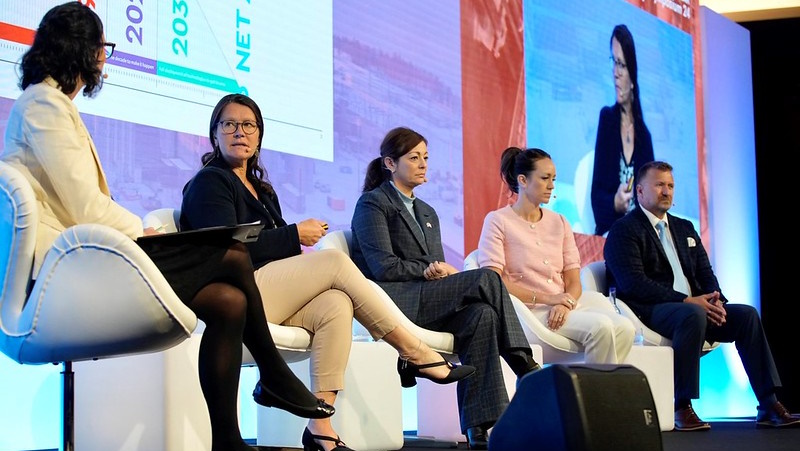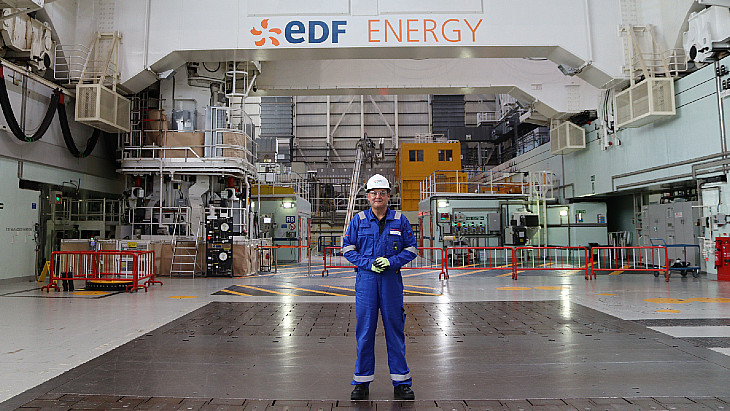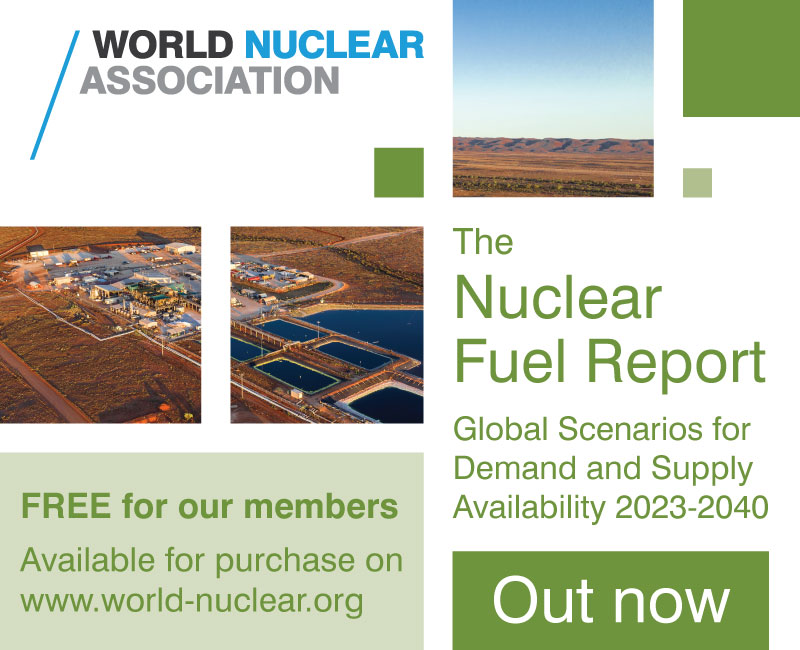Russia and Philippines agree to nuclear cooperation
 Russia is to assist the Philippines in developing national policies for the development of nuclear energy through a memorandum of cooperation signed on 13 November. The cooperation will include feasibility studies on the construction of small modular reactors.
Russia is to assist the Philippines in developing national policies for the development of nuclear energy through a memorandum of cooperation signed on 13 November. The cooperation will include feasibility studies on the construction of small modular reactors.Russia is to assist the Philippines in developing national policies for the development of nuclear energy through a memorandum of cooperation (MoC) signed on 13 November. The cooperation will include feasibility studies on the construction of small modular reactors.
.jpg) |
| Spassky (left) and Cusi exchange the signed MoC documents (Image: Philippine DoE) |
The cooperation agreement was signed between the Department of Energy (DoE) of the Philippines and Russian state nuclear corporation Rosatom in Manila on the sidelines of the 12th East Asia Summit. It was signed by Philippine Energy Secretary Alfonso Cusi and Rosatom Deputy Director General Nikolay Spassky. The exchange of the signed documents was witnessed by Philippine President Rodrigo Duterte and Russian Prime Minister Dmitry Medvedev.
Through the MoC, Russia and the Philippines will cooperate in several areas, including carrying out nuclear infrastructure studies towards national energy policy development and nuclear energy programme implementation in the Philippines.
The two parties will also conduct an audit and assessment of the technical condition of the mothballed Bataan nuclear power plant, "including the option of its rehabilitation". The first 620 MWe unit of the plant was completed in 1984 but was never fuelled or operated.
Russia will also assist the Philippines in carrying out feasibility studies on the construction of small modular reactors, either onshore or offshore. The Philippines DoE said these studies will "not be limited to analysis of technical, commercial, financial and legal aspects". Feasibility studies on the construction of conventional nuclear power plants may also be carried out, "as may be deemed necessary and consistent with national energy development plans and policies of the Philippines".
The cooperation will be implemented in the form of joint working groups that will undertake specific projects and tasks; the exchange of experts; workshops; training and education of personnel; and sharing of technical information. The MoC will run for five years, but can be extended for a further five years.
Cusi said, "The cooperation with Russia is part of the government's intention to develop a variety of applications of nuclear energy that are within our policies, particularly for power generation." He added, "Through this MoC, we can tap the significant experience of Russia in harnessing nuclear energy and the emerging technologies related to it for peaceful purposes that is safe and secure."
In June, during the IX AtomExpo International Forum in Moscow, Rosatom subsidiary Rusatom International Network signed a memorandum of understanding with Philippine firm A Brown Company Inc. The parties plan to develop economic, scientific and technical cooperation in the field of the peaceful uses of atomic energy, as well as jointly explore applications of radiation technologies in industry, medicine and agriculture. They also plan to hold a series of events to raise public awareness about nuclear technologies and their application in the Philippines.
Researched and written
by World Nuclear News


.jpg)










